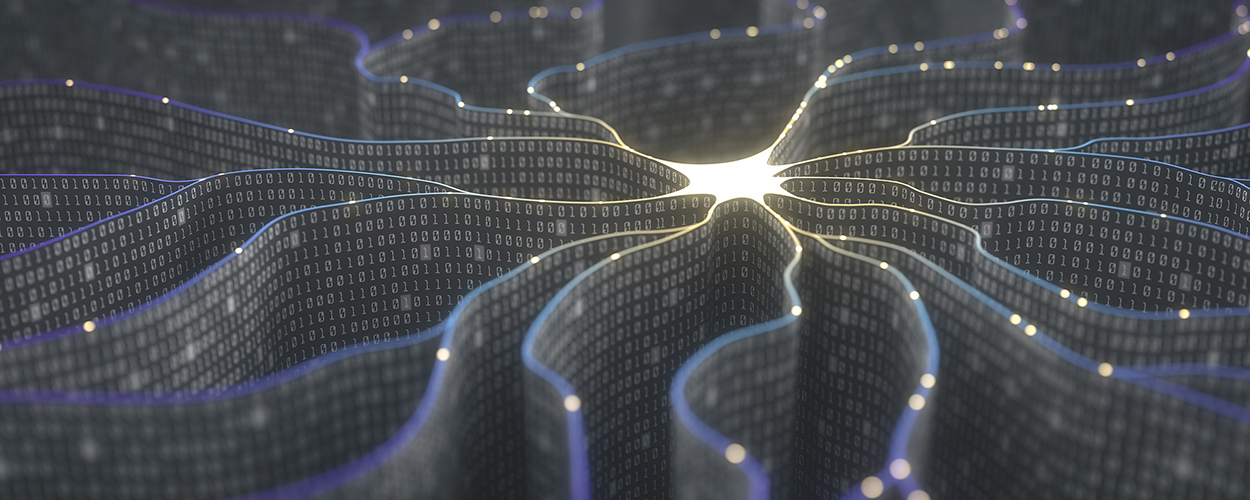This website uses cookies so that we can provide you with the best user experience possible. Cookie information is stored in your browser and performs functions such as recognising you when you return to our website and helping our team to understand which sections of the website you find most interesting and useful.
Business News Digital Top Stories
WIPO opens consultation on the copyright questions raised by creative AI
By Chris Cooke | Published on Tuesday 17 December 2019

The World Intellectual Property Organisation has formally opened a consultation that seeks to ask and consider the IP-related questions raised by artificial intelligence becoming increasingly creative.
The ability of AI technologies to compose and produce original music has become quite a talking point in the music community in recent years, with a number of interesting start-ups dabbling in this space, and major labels and digital music firms also getting involved, often through acquisition of the aforementioned start-ups.
Most of the entrepreneurs behind those companies insist that they don’t want to put composers and songwriters out of business, arguing that their technologies won’t ever replace humans in the music-making process, and that instead they are creating tools that can be employed by those human creators to enhance the music making process.
However, some AI music start-ups are going into competition with the production music libraries by offering low-cost easy-to-license music for soundtracking videos. The AI companies can match the traditional production music firms on price and ease-of-use, but offer a totally original composition, rather than something numerous other video producers may have already utilised.
Whether the best AI-created music can match the best human-created compositions in your average production music library is debatable, of course, but the machines that make music are only getting better at it as the years go by.
The bigger question is could AI technologies move beyond making production music and start composing the pop hits of the future? Most people in the music community seem certain that truly innovative music-making will always require human beings. But, a cynic might add, you don’t need truly innovative music-making to generate a hit.
Meanwhile, beyond the machines v humans debate, for copyright geeks the rise of AI music-making poses a number of interesting legal questions. Which is what, among other things, WIPO – a ‘specialised agency’ of the United Nations – is now starting to debate. Having published a report on technology trends and then staged a number of discussions earlier this year, WIPO has now produced an issues paper to inform its new consultation.
On copyright, it notes that “AI applications are capable of producing … works autonomously. This capacity raises major policy questions for the copyright system, which has always been intimately associated with the human creative spirit and with respect and reward for, and the encouragement of, the expression of human creativity. The policy positions adopted in relation to the attribution of copyright to AI-generated works will go to the heart of the social purpose for which the copyright system exists”.
“If AI-generated works were excluded from eligibility for copyright protection”, it goes on, “the copyright system would be seen as an instrument for encouraging and favouring the dignity of human creativity over machine creativity. If copyright protection were accorded to AI-generated works, the copyright system would tend to be seen as an instrument favouring the availability for the consumer of the largest number of creative works and of placing an equal value on human and machine creativity”.
Other interesting questions to ask include: Assuming AI works are protected by copyright, who does the copyright belong to? And if, as with musical works, the copyright term is usually linked to someone’s lifetime, whose lifetime?
“In the event copyright can be attributed to AI-generated works, in whom should the copyright vest?” the WIPO paper goes on. “Should consideration be given to according a legal personality to an AI application where it creates original works autonomously, so that the copyright would vest in the personality and the personality could be governed and sold in a manner similar to a corporation?”
Also considered is how AI technologies evolve, and what copyright law should say about AI tools that process other existing works in order to learn how to make new ones. At what point does an AI technology need a licence to learn, and when could the technology be deemed to have infringed copyright?
Some copyright systems do already have some lines of law that seek to anticipate the rise of machine-created works, while others are currently silent on the matter. But either way, it does seem likely that copyright law around the world is going to need to address all these AI-centric questions sometime soon. So it will be interesting to see what opinions are shared and issued raised in this WIPO review.
You can access the issues report here. And you’ll find more information about the consultation here.





